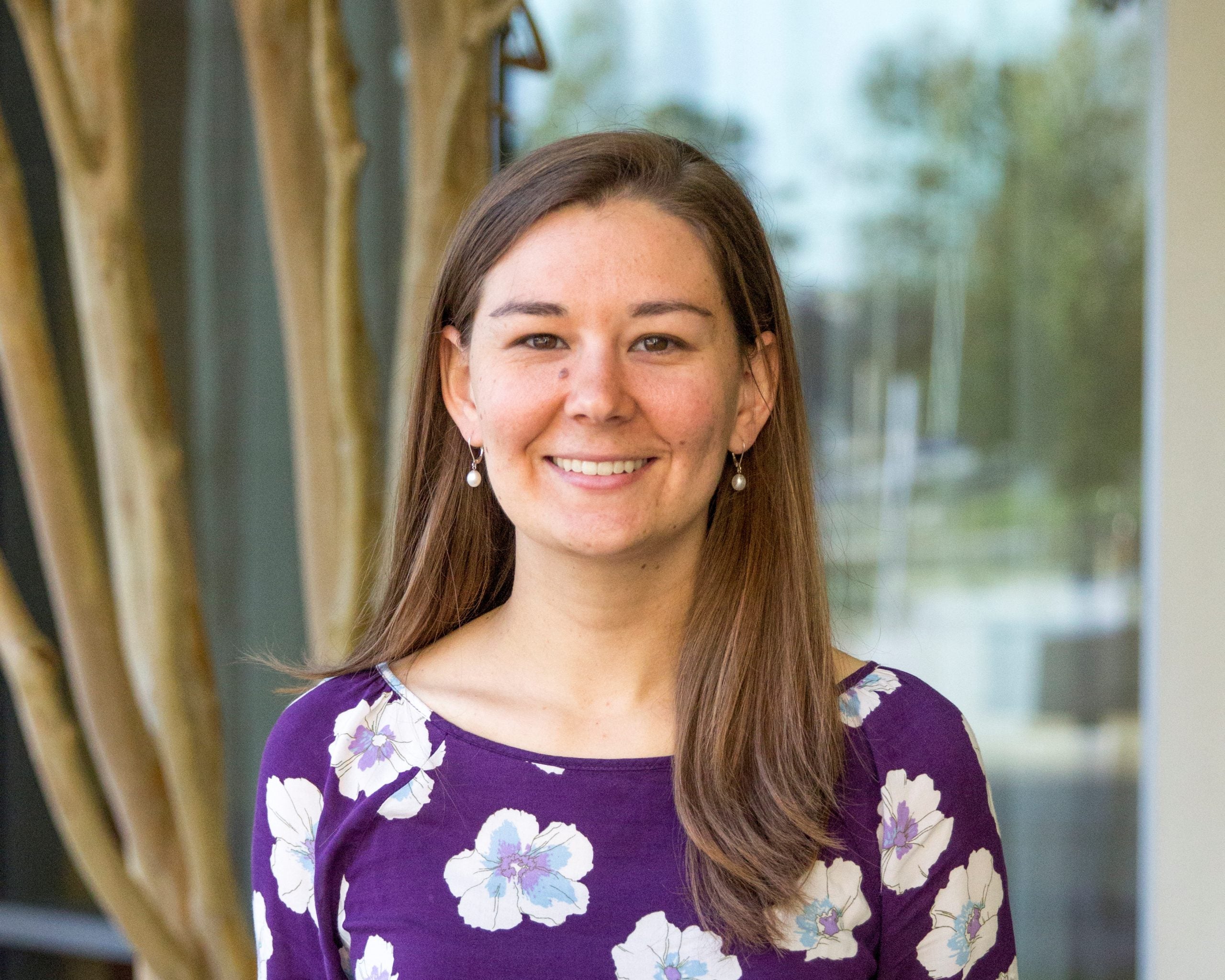Maggie Espino was an English Language Fellow at Eastern University in Dhaka, Bangladesh from 2014-2015. Her primary project was teaching English language foundation courses for first and second semester undergraduate students. Both professionally and personally, Espino developed more confidence as a teacher trainer, public speaker, and educator during her time in Bangladesh.

“As a naturally soft-spoken and introverted person, I wasn’t one to voluntarily stand up in front of a large room of people and give a talk or workshop. Only two weeks after I arrived in Bangladesh, I presented at a teacher-training conference with several hundred participants. My legs were shaking the whole time I was on stage for the plenary session. Now, I can see the huge amount of growth in my life as I can more easily speak in front of others—I even gave a workshop to students on public speaking! As I was saying good-bye to my American Center colleagues, several people commented that they could really see the change and growth in my personality over the course of my fellowship.”
Espino’s contributions as a Fellow made a huge impact on the teachers she trained and the students she worked with. “In the larger English as a Foreign Language community of Bangladesh, I feel like I made the biggest impact on the local teachers who attended our Massive Open Online Course (MOOC) discussion sessions.” Along with her colleague Christina Torres, another English Language Fellow living in Bangladesh, Espino facilitated discussions for the U.S. Department of State American English “Shaping the Way We Teach” English MOOCs.

“Our group became a community of teachers that could collaborate and share our successes and challenges. Even though there was considerable political unrest in Dhaka at the time, many local pre- and in-service teachers attended weekly discussion sessions.” After the conclusion of Espino’s fellowship, an American Space continues to host MOOC sessions led by local staff. Espino wrote a guide for how to lead the sessions and trained American Center staff on hosting them. “It’s wonderful to know that something I worked so hard to implement (and also enjoyed) continues even now.”

“In addition to our weekly MOOC sessions, I was especially excited to plan and implement multi-day teacher training events in major cities outside of Dhaka including Sylhet, Chittagong, and Cox’s Bazar. By working with the Fulbright English Teaching Assistants, we could reach local teachers in areas that are away from the capital and don’t always get the benefit of Embassy-sponsored training programs. In this way, we worked with the Fulbright ETAs to continue partnerships that past Fellows had started with local teachers and organizations. Since each of these teachers has an average of 40 to 50 students per class, we expected the impact of these events to be felt throughout the country.”
Traveling in Bangladesh for teacher training workshops also afforded Espino and her colleague Torres the chance to explore the culture of various cities around the country. “While traveling, we visited Srimangal, which is a beautiful area between Sylhet and Dhaka known for its natural beauty and tea estates. We went on a hike in the rainforest, explored tea gardens, and visited a local potter’s home where he showed us how he creates beautiful works of art.”

Because Fellows live in their country of assignment for ten months, they have the chance to participate in unique cultural activities and holidays. “I attended a Pohela Boishakh (Bengali New Year) celebration in my neighborhood with Fellow Christina Torres. We ate traditional foods, wore colorful sarees, and watched traditional dancers and musicians. There were so many excited and friendly people crowded into the space for the celebration—it felt quintessentially Bangladeshi.”
Espino’s skills as a TESOL professional and teacher trainer were greatly valued during her fellowship. “During my fellowship, I truly felt like an expert in the field and like I have valuable knowledge and experience to contribute to the field of language teaching and learning. Over the course of my fellowship I had many projects going on at once, and even with all the political problems and cultural adjustments, I was able to finish all of them with a high level of quality that I’m proud of. In addition, I developed so many important relationships and made new friends and colleagues that I still keep in touch with today, almost two years since I’ve returned home. Even now I’m working with another former Fellow on some possible conference presentations and speaking with colleagues and students in Bangladesh to collaborate.”

Espino is now an English Language Instructor and Course Coordinator with INTO George Mason University, where she teaches intensive English for Academic Purposes courses and coordinates cohorts of instructors to ensure quality instruction and assessment. “I had been teaching for several years, but participating in the fellowship helped me move from simply being a teacher to a new level in my career. In my current job, I’ve taken on more leadership roles than I ever did previously, and I’m continuing work on faculty development by coordinating a cohort of teachers, just like I did in my fellowship. Facing the challenges and many responsibilities of my fellowship made me more confident in my professional abilities.”

Espino’s experiences in Bangladesh helped her secure a job at GMU even before she finished her fellowship. “I applied, interviewed for, and accepted my current position at George Mason by Skype while I was still in Bangladesh! In my interview, the search committee was interested in my fellowship experience, especially the teacher trainings that I had facilitated. They asked me about challenges in my teaching career and how I overcame them—I had plenty of examples to share just from my fellowship experience.”
“I’m happy that I learned and loved so much in a place that is so completely different from anywhere I’d ever been before. It was a time of tremendous growth, and I’ll always treasure my fellowship in Bangladesh.”

